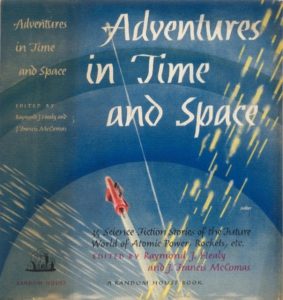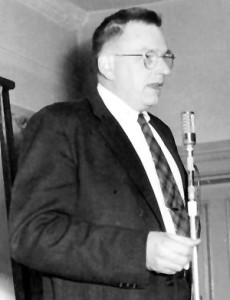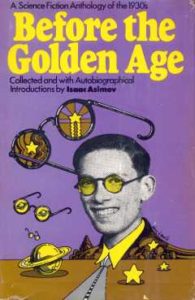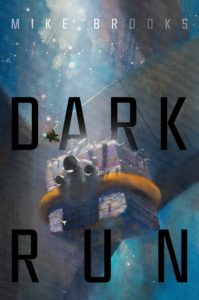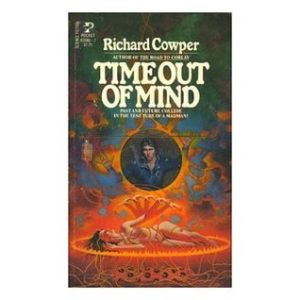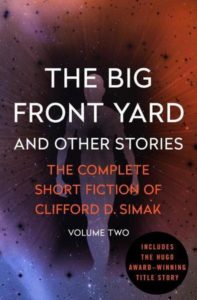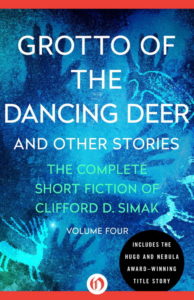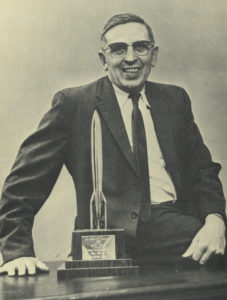So I actually had some time last night to sit and read. I read two short stories by Frank Herbert since yesterday was his birthday.
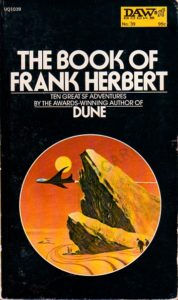 The first one I read was “Encounter in a Lonely Place”. The ISFDB lists it as having first been published in The Book of Frank Herbert.
The first one I read was “Encounter in a Lonely Place”. The ISFDB lists it as having first been published in The Book of Frank Herbert.
It’s short tale about a man who gets into a conversation with the village bachelor. The bachelor had looked over the man’s shoulder and seen him reading an article on ESP. (This was published in the 70s, remember.)
The bachelor tells the man about his ability to read minds, or rather one mind, that of the woman he loves. This freaks her out, and she flees. Of course she turns up before the story ends, but as to whether the ending is happy, well, that I ain’t gonna tell.
I quite enjoyed this tale. There’s not a lot to it, but it was well done. I have a fondness for science fiction that takes place in ordinary settings and involves ordinary people.
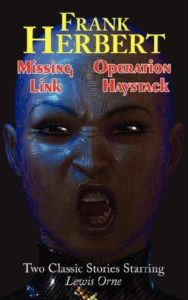 The other story I read was “Operation Haystack”, the third of four about a special agent named Lewis Orne. He’s an operative for the Bureau of Investigation and Adjustment. It was published in 1959.
The other story I read was “Operation Haystack”, the third of four about a special agent named Lewis Orne. He’s an operative for the Bureau of Investigation and Adjustment. It was published in 1959.
In other words, he tries to help the government control things from behind the scenes. In this story, he’s not the only one manipulating things. Orne has only a few hours to uncover a conspiracy that threatens the stability of the galactic empire. It’s not called an empire, but that’s essentially the role of the government in this story.
This one had some gender politics in it that would be politically incorrect today. (No, that’s not the reason I enjoyed it. Well, not the only reason.)
I enjoyed this story enough to want to give the other Lewis Orne stories a try.
Herbert also has a short series about a government agency that is sanctioned on sabotaging other government agencies. This series is set in a multi-alien galaxy. It consists of the short stories “A Matter of Traces” and “The Tactful Saboteur” and the novels Whipping Star and The Dosadi Experiment. I’m looking forward to reading them as well.


